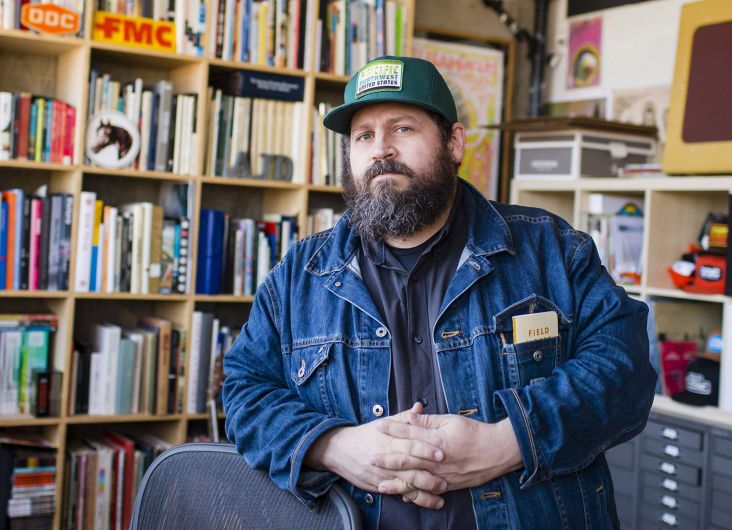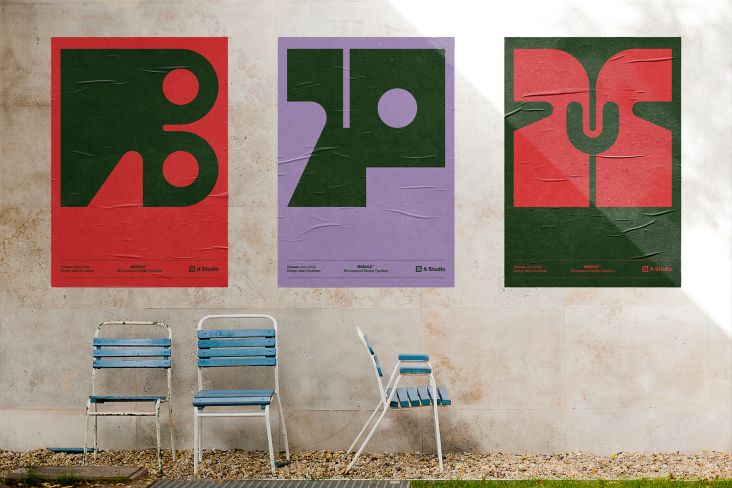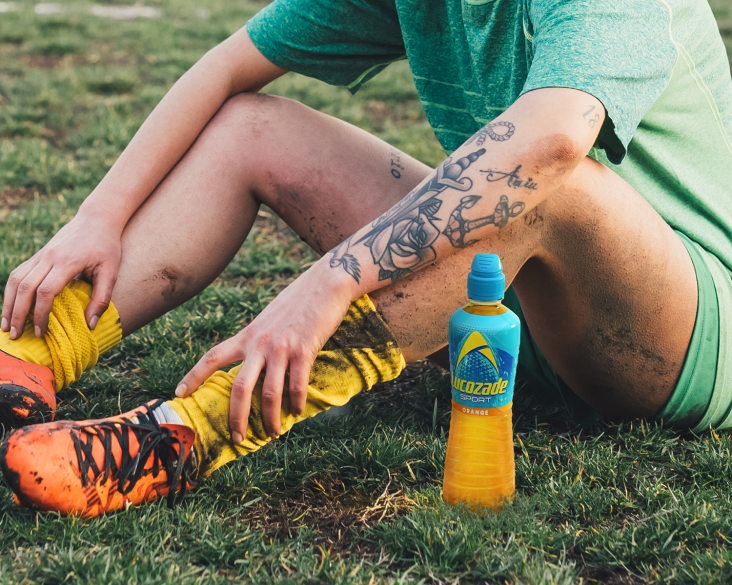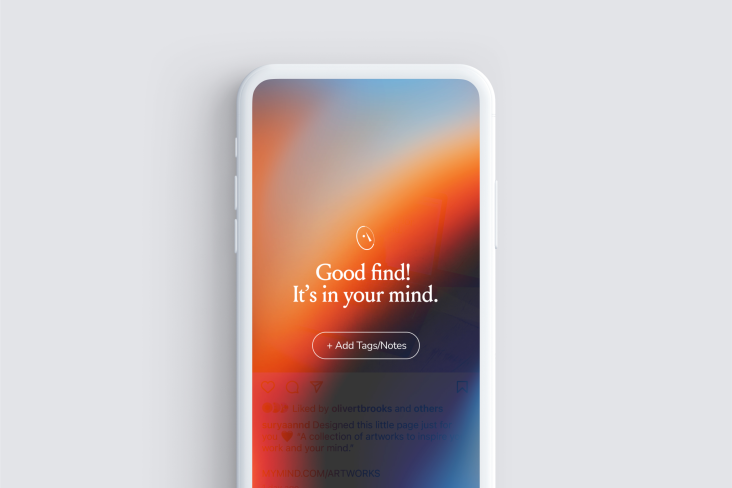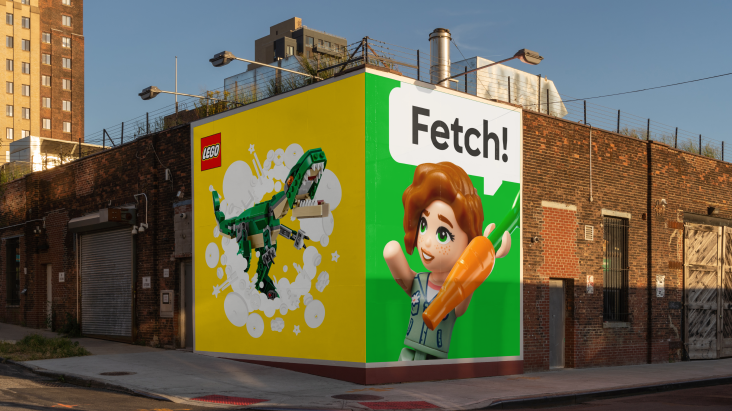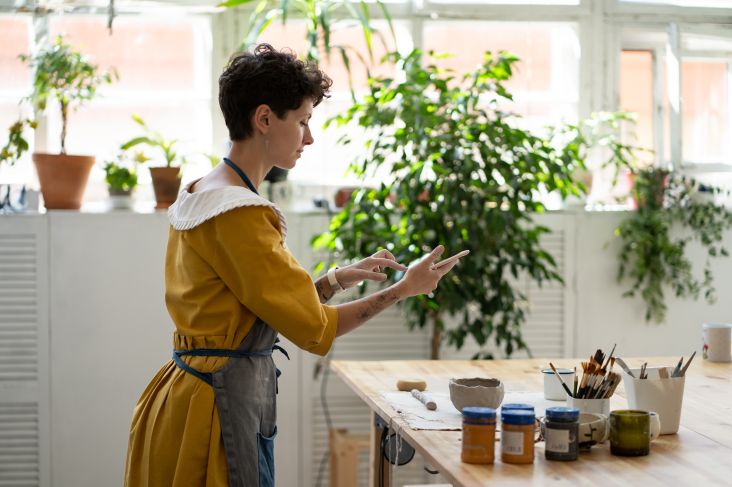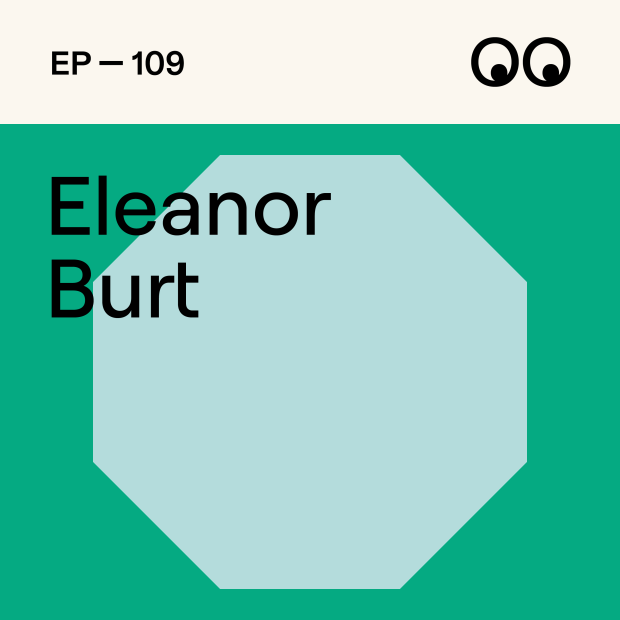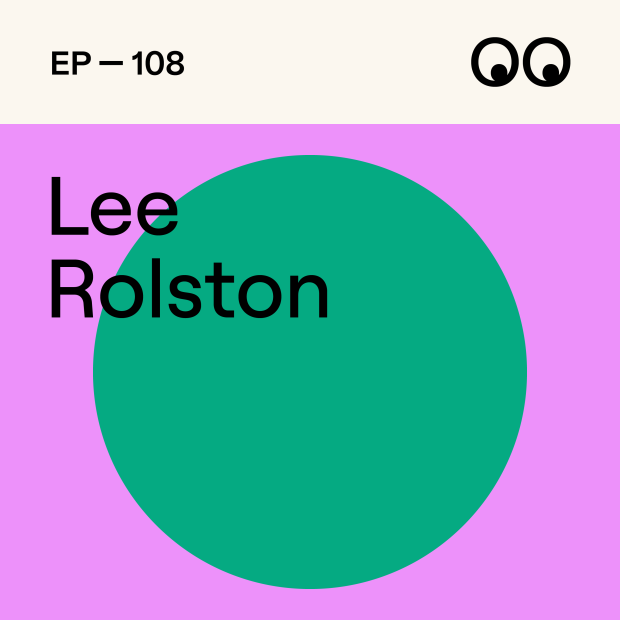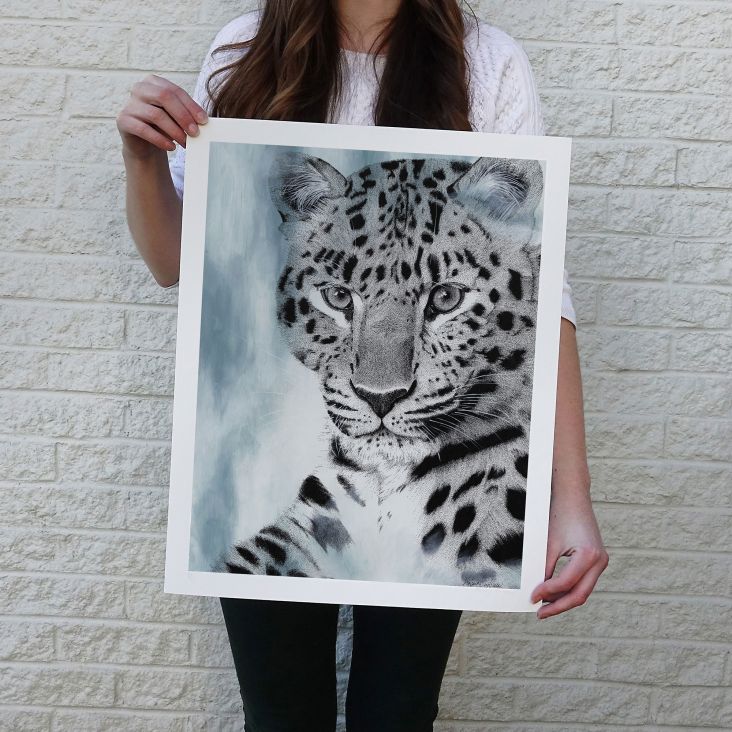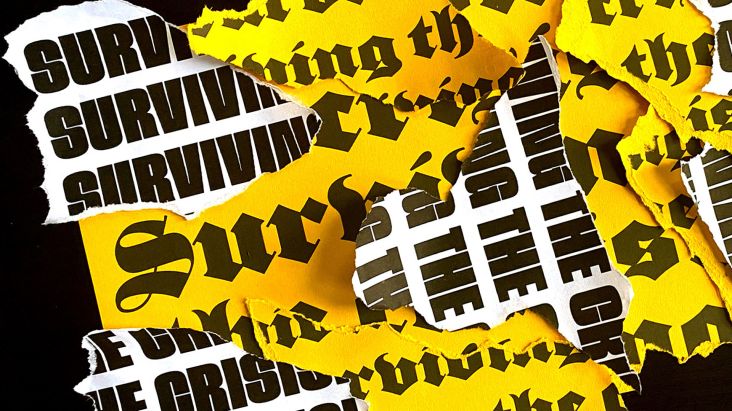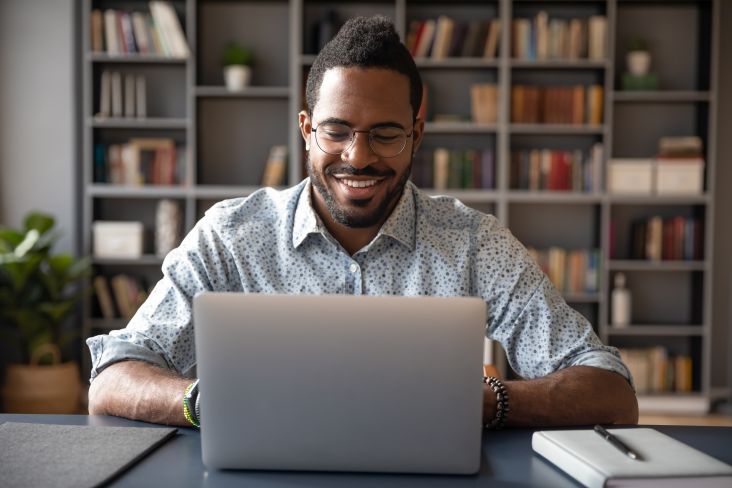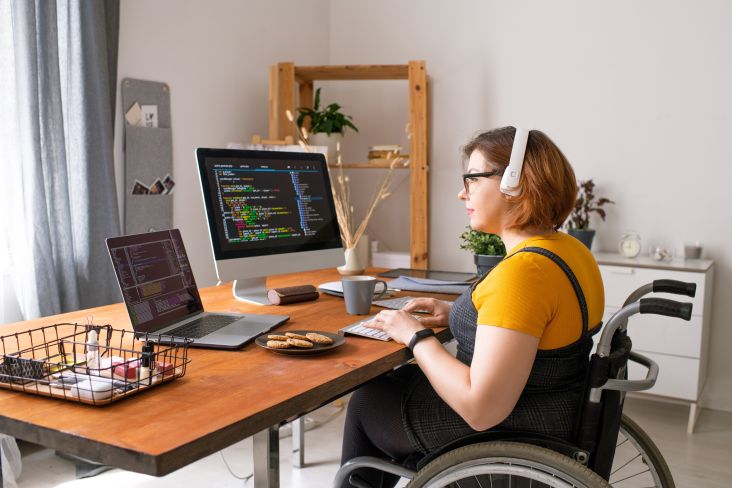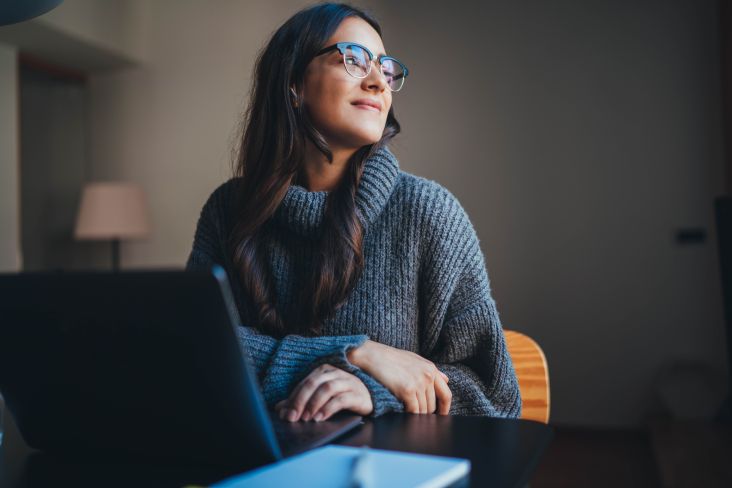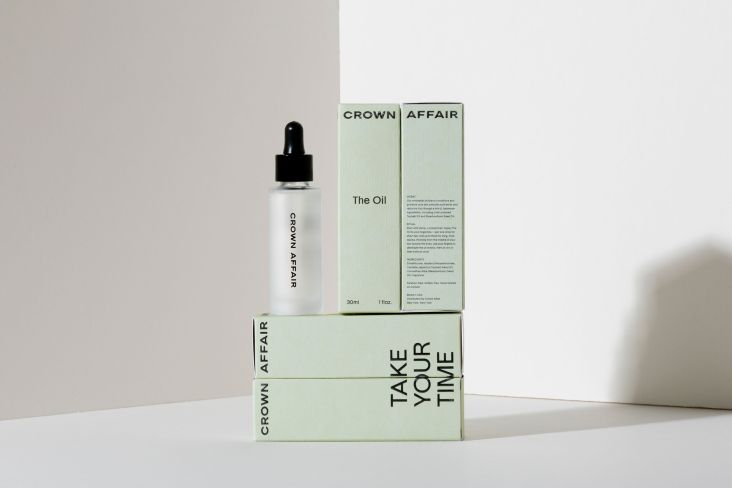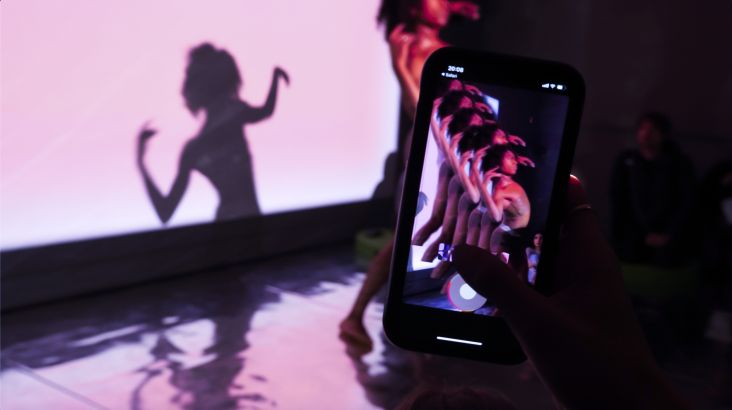What creative freelancers will be doing differently when things return to normal
Over the last two weeks, our entire world as we know it has been turned upside down in a bid to protect the NHS and save lives. Although we're happy to do our bit, it's especially tricky for freelancers and small businesses in the creative industries, as often the first thing to be cut is marketing.

Image licensed via Adobe Stock
A lot of the design, illustration, photography and copywriting that keeps our clients ticking over is on hold and we don't know when they'll be hiring us again. For some of you, outstanding invoices haven't yet been paid, and you're wondering how long this will continue.
Rather than focus on what we can't control, many of you are finding ways to adapt and survive. You're refreshing your portfolios, approaching your network, starting side projects, and refusing to let the current situation stop you from staying positive and afloat.
We're learning many lessons and are taking this time to reflect. We're asking the question, how will we do things differently when all this has blown over? I asked Twitter about some of these lessons to share them here and help all of us be prepared in future.
1. Save, save, save
We've always said it at Creative Boom: have a healthy reserve of cash before you go freelance. There will be moments of quiet and you'll need to be ready for them. However, no one could've predicted COVID-19 or the current lockdown. No one. If you're struggling, first of all: don't be hard on yourself if you've not got enough savings (you are not alone); just make sure you prioritise having money in the bank in future.
"I've always had a bit of a buffer, by over-saving for tax and things," says web designer Dave Smyth. "That's seen me through quieter periods and times of prolonged interruption (like paternity 'leave'), but something like this is quite different: there's no endpoint, and it affects everyone."
2. Change the way you get paid
Sick of waiting 30 days for payment? Yes, we are, too. It doesn't have to be this way. You can choose how and when you get paid. "Make your payment terms work for you," says London-based photographer Ameena Rojee.
"Even before coronavirus, my payment terms were 14 days after delivery because I thought to wait for an entire month was just ridiculous. I'm now requesting payment within seven days and also ask for a % on photoshoot completion, and the last % on delivery. I've surprisingly had very little kickback."
Ameena makes an excellent point: start asking for payment in stages – how many depends on the length of a project. A deposit upfront might be all you need for smaller jobs. But if you expect the work to continue for months, then it's not unusual to request payment as you go along. Manage expectations before any project begins, so your client fully understands how you like to be paid.
3. Remember that clients are human, too
"Be kind and human to clients, at all times," says freelance graphic designer and web developer, Simon Minter. "You never know what individuals may be going through (even when not in a situation like we're in right now). No need to treat them simply as the one that pays your invoices or gives you difficult feedback."
It's a valid point. We're all in the same boat, so try not to make assumptions or forget that your client will be struggling too. In which case, pick up the phone and chat with them. If they can't pay your invoice now, what could they afford to spend? Could they do it in stages? If they still need support, what can you do to help but at a reduced cost? Anything is better than nothing, right? And they'll remember your kindness and loyalty when things return to normal.
4. Be more cautious about new clients
"I won't be starting any work until the initial invoice has been paid," says graphic designer Karen Arnott. "I won't be coy with my pricing, either. I won't work with people who don't value design. I'll be more assertive with scope creep and price chasers. And I won't work with clients who use phrases like 'quick job' or 'it won't take you long'."
Karen probably shares what we've all been thinking: we've got fire in our bellies. We've had time to think about what's important and the bullsh*t we won't be putting up with moving forward.
5. Find a better balance
The slower pace and chance to work from home have meant that many of us are finding balance like never before. "I will be working on getting a better work/life balance, take more afternoons off and enjoy long weekends to appreciate the outside world," remarks Ellen Forster.
Creative Director Neil A Evans agrees: "Remember, you might love what you do: but you can't burn the candle at both ends indefinitely. You will burn out. Making time to recharge your creative batteries, giving yourself thinking time, time for admin, time for eating and exercise and family and friends, is important."
Writer Joan Westenberg adds: "I won't be letting work overcome my boundaries to consume and define me. And I'll be finding purpose outside of it all."
6. Develop more income streams
In times such as these, it becomes apparent that we shouldn't have all our eggs in one basket. "As creatives, we are frequently encouraged to be more niche or focused, and I often worried I had too many small revenue streams," says illustrator Niki Groom. "But it's been my saviour, I've switched all attention to my online shop, and it's bringing me an income. I trade as a limited company, so don't get government support."
Writer Luc Benyon reminds us that: "Your biggest asset is not necessarily your product, but your expertise. When the delivery of your product is under threat, you can always find a new way to monetise your skills and knowledge."
You have to adapt, expand your skills and find out new ways to make money. "I've diversified the writing services I offer and developed virtual ones like Skype-based consultations," says writer and singer-songwriter Miranda Dickinson. "All of my income came from book sales, most of them physical, and author events, so the move to e-sales and virtual events has had to be swift to provide any income."
7. Learn to say 'no' without guilt
Now we have all this time to step back and reconsider, many of us are realising that we're not happy in some aspects of our work. We might feel like we've been on a treadmill for too long and are craving change.
"If the work isn't what you want to do or if it doesn't add value to your portfolio, if the client has previously been trouble, or if you're concerned in any way about getting paid fairly – don't be afraid to say no," says Neil A Evans. "Saying 'no' is empowering for small business owners."
Writer Becca Magnus adds: "I'll be doing work that feels genuinely human, different and empathetic. Marching to the beat of my own drum rather than copying anyone else." It's this fighting spirit and determination to gain back some integrity that we can all resonate with right now.
8. Continue to be efficient where possible
"We're hoping that more of our clients will carry on video calling rather than insisting on client meetings," says Ben Mainwaring, a digital marketer from Northampton. "It's way more efficient and productive than spending six hours a week driving to meetings."
We couldn't agree more. Many of you are also providing virtual consulting, too. Some at discount rates compared to face-to-face. It's a no-brainer and follows the growing eagerness to be more upfront and confident about how we run our businesses, how we get paid and what our expectations are for a healthy client relationship.
You might also be considering cutting costs elsewhere, now that you've seen how much you save from not having a co-working membership; nevermind the commuting!
9. Don't forget your own PR and marketing
"It's important to work on your website or marketing right now. Company marketing/PR spend will most probably be reduced even when this is done, so you need to be on top versus your competitors to get what work will be out there," says Elizabeth Wilson, a freelance copywriter in Australia.
Elizabeth is right. What better time to focus on our websites? I've just overhauled my PR agency, Boomerang, bringing a new brand identity to life on an existing Squarespace theme. It was supposed to be built on a bespoke platform, but we've never found the time. With lockdown continuing, it suddenly doesn't matter. What can you do today to improve your brand, copy, website, portfolio, marketing materials?
Still not convinced? We'll leave you with these wise words from graphic designer Rob Birkenhead: "As an old boss of mine used to say... When the going gets tough, the tough get marketing."
10. Get more secure, ongoing work
"I want to find more retainers to balance out the uncertainty," says Sally Wanless, an illustrator, designer and photographer based in Edinburgh. It's a valid point: how can we, as creatives, become so indispensable that our clients don't just drop us the minute trouble strikes?
You need to find ways to keep things ticking over. If you're a web designer, could you provide web hosting and ongoing site maintenance? If you're a designer, what can you do that your clients will always need? If you write for a living, shouldn't your client maintain its blog?
Could it be worth reminding your clients right now about the importance of marketing, especially when their own competition might be cutting back? Start with a small retainer and know that you can always increase it, should things change.
